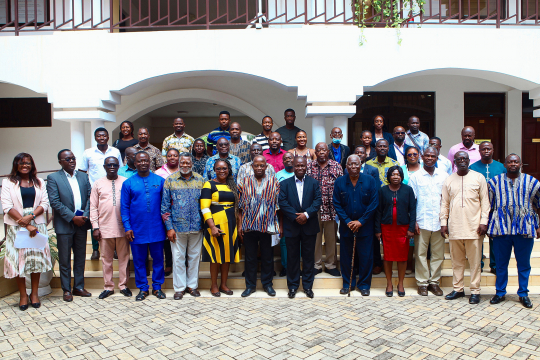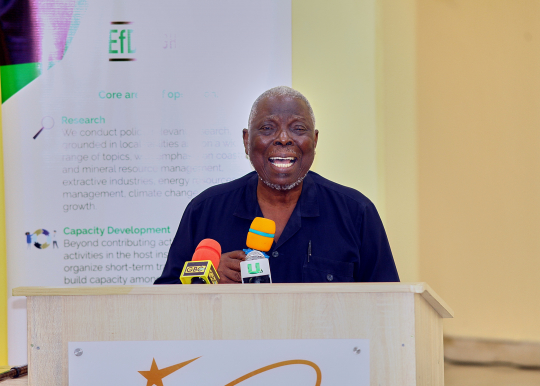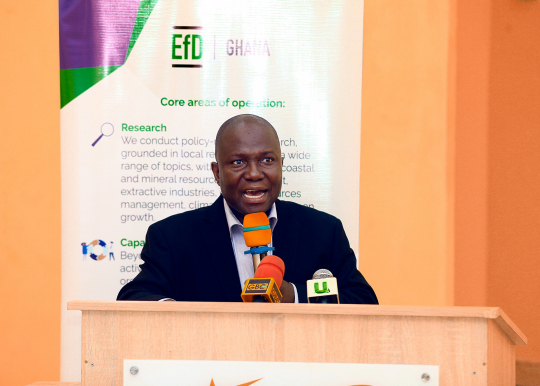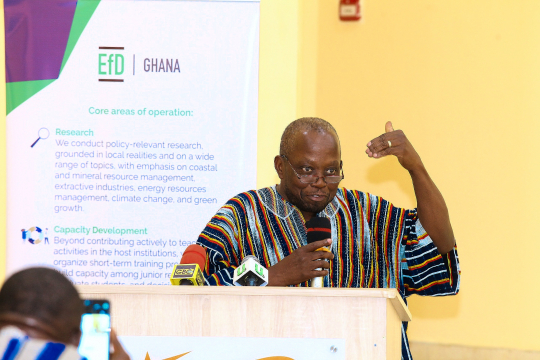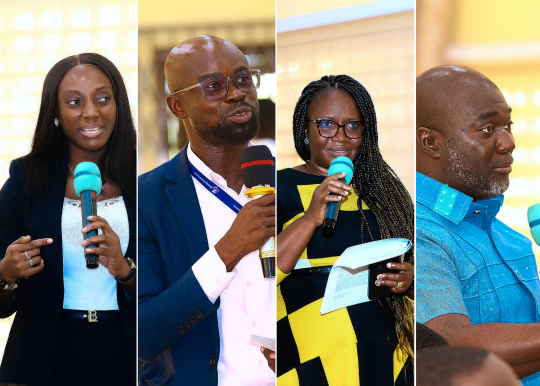Ghana's extractive industry faces challenges, limiting its potential to contribute effectively to the nation's economic growth. The EfD Ghana seminar, titled Getting More from Ghana’s Extractive Industry: Prospects and Challenges, brought together notable experts in the sector to discuss the most pressing issues and opportunities to help derive greater benefits for development. Key recommendations included quality leadership, effective implementation of policies, and the need to shift from problematic contractual agreements to progressive frameworks that maximize the economic and development benefits of mining.
Leading the participants to consider alternative mining governance frameworks was Solomon Kwawukume, a respected champion of equitable and fair exploitation of natural resources in Ghana. The presenter elaborated on the merits and demerits of two mineral exploitation agreement types: the Mineral Production Sharing Agreement (MPSA) and the Concession Contract. He noted that concession contracts allow private companies to exploit a host country’s resources for a specified period, only paying royalties, which are often disproportionately low. Under MPSA contracts, where governments partner with international companies to exploit and develop hydrocarbons, the economic benefits to the host country are significantly higher. He advocated for a shift to production-sharing agreements, citing successful examples from countries like Eritrea, a call that resonated with many participants.
“The presentation today has been edifying... the interest should be in adopting an approach that maximizes the extraction of the economic profit,” Leslie Mensah of the Institute of Fiscal Studies (IFS) Ghana shared.
Weak institutions and policy failures hampering progress
Wisdom Akpalu, the Director of EfD-Ghana, addressed critical issues including policy failures, corruption, weak institutions, and poor leadership.
“Our biggest challenge is the poor quality of our institutions; they are generally very weak and not independent,” Wisdom Akpalu said. He likened Ghana to a dome where unchecked exploitation by a few could lead to collapse, emphasizing the collective responsibility to safeguard national resources. He stressed that effective policy implementation and leadership are crucial for overcoming these challenges.
A call for accountability
Daniel Domelevo, a former Auditor General of Ghana, provided a critical perspective on the underlying issues of corruption and lack of accountability in Ghana. He emphasized the importance of leadership and the need for citizens to hold leaders accountable, especially in the upcoming electoral period.
“Corruption is the story behind the story of Africa. Why will you have something in your house and you will allow outsiders to come and take it away and you benefit not?” he questioned.
Research as a cornerstone for sustainable development
Daniel Twerefou, the EfD-Ghana Research Manager, underscored the critical role of research in fostering a sustainable environment and equitable development. He highlighted the seminar’s relevance in addressing Ghana’s extractive industry challenges and emphasized the need for informed policies to harness the sector’s full potential.
Engaging stakeholders in meaningful dialogue
The seminar featured an engaging Q&A session, where participants actively contributed to the discussion, expressing a strong desire for change in Ghana’s extractive policies. The event concluded with a networking session and media interviews, providing additional avenues for participants to deepen their understanding of the insights shared during the seminar and strengthen relationships. It was held on 12 June 2024 at the ISSER conference room, University of Ghana. Below are selected online media reports drawing on the discussions.
By: Vicentia Quartey
